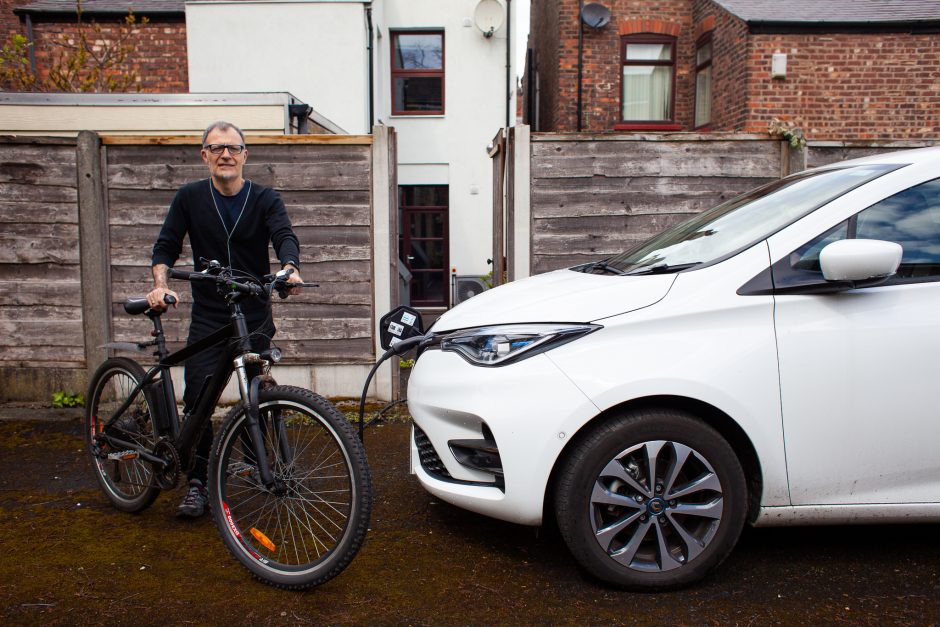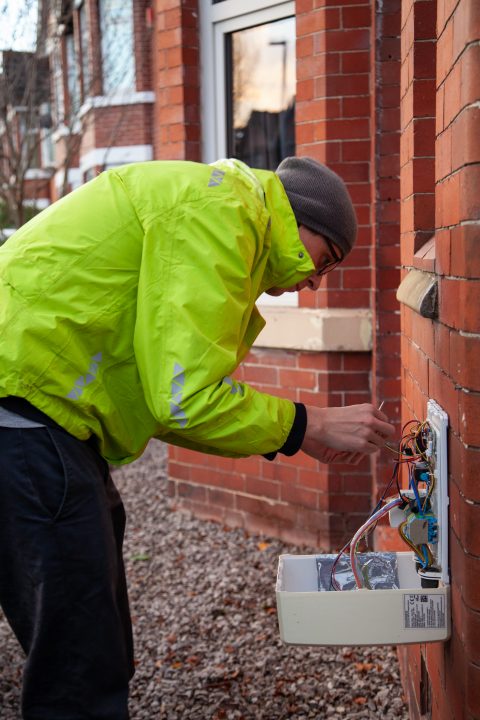Manchester’s Carbon Co-op – which offers energy services to help households reduce their carbon footprints – is developing a set of new projects in a bid to put citizens in the driving seat of the energy transition.
Alongside this are two other new schemes: Oldham Energy Futures and Power Shaper. All three arrive just as the UK heads towards a gas supply crisis, and Carbon Co-op says insulation to reduce energy loss and the switch to heat pumps all offer answers to that crisis.
But co-founder Jonathan Atkinson says for the carbon transition to work, it is vital that people are more flexible about how they use energy because renewable generation does not always peak at the same time as demand. “That means citizen involvement and collective, co-operative action,” he says.

The government has already recognised the problem, he adds, with a policy push to local energy planning so that supply is tailored to local patterns of demand – which are also changing with the rise of home working and the roll-out of electric vehicles (EV).
“Our criticism is that not many people know about this local planning,” says Mr Atkinson. “So how do they get involved, and how are they consulted when there are big fundamental discussions about the heat network, EV charging, where renewables are based?”
Oldham Energy Futures looks to drive this citizen involvement, helping local people plan for energy transition in their area – and is also funding seed projects such as EV car sharing, e-bike sharing, PV installation and small scale retrofit companies.
“We’re looking to pilot small-scale social enterprises and co-ops,” adds Mr Atkinson. The project – which has been supported by local MP and Co-op Party chair Jim McMahon – involves other organisations such as the Centre for Local Economic Strategies and URBED co-op.
Power Shaper tackles the problem from the other end, looking for ways to help people shift their peak energy demand to reduce pressure on the grid and take advantage of times when renewables are available.
“For example, if everyone comes home from work and plugs in their EV to charge at once, you get a spike in demand,” says Mr Atkinson. “If there’s no sun or wind, you have a problem – but if people switch to doing their charging at 2am when there is less demand, it might work.”
One way to make this work is to set up an aggregating business which would offer a demand shifting service to coordinate between households and energy firms.

“We think this is ideal for a co-op,” says Mr Atkinson, “because it is coordinating sensitive devices and data in people’s homes. There are trust issues – people don’t necessarily trust energy companies, so would they trust them to be turning things on and off in their home? And how are payments shared? A co-op owned and run by its members would bring in trust and a fairer split of the benefits.”
It’s still early days for this, he adds, with work in the pilot stage, software under development and early adopters volunteering to test systems out.
“There’s a real need to create flexibility in-home, where there are all kinds of devices associated with different companies; that creates issues of interoperability and communication with all these devices.”
Carbon Co-op is lobbying the government to find a fix on this, and to find ways to keep the process secure and private, and is also working with a European partnership of citizen-led energy co-ops in Belgium, Spain and France. “Collaboration is important,” adds Mr Atkinson. “We need to replicate what we do elsewhere.”
Co-ops can also help with making new systems affordable: ESCOs – energy services co-operatives – can offer these technologies with reduced up-front cost and finance packages, and can work with social housing providers to offer these benefits.
“In the last 18 months interest has really taken off,” says Mr Atkinson. “Climate is at the top of people’s agendas, the number of people asking us about heat pumps has gone through the roof. The enthusiasm of the public and our members runs ahead of the ability of the government to move.
“We’ve had a mixed response from the government – there are definitely people there who are interested, there is a discussion with civil servants going on. But action is missing: the Building Decarbonisation Strategy has been pending for months, and the Green Homes Grant was condemned by the National Audit Office as a waste of money.”
Regional politicians like Greater Manchester mayor Andy Burnham also make positive noises, he adds, but there is a limit on what city mayors are allowed to do.
“You need time to think things through and do them properly,” says Mr Atkinson, “but there’s been a gap in policy-making for 10 years now. The green deal closed in 2014 and since then there’s been a lot of dithering.
“But our membership is rising by a third every year – it has really picked up, and if people do want to get involved in the energy transition becoming a member of Carbon Co-op is a great way.”